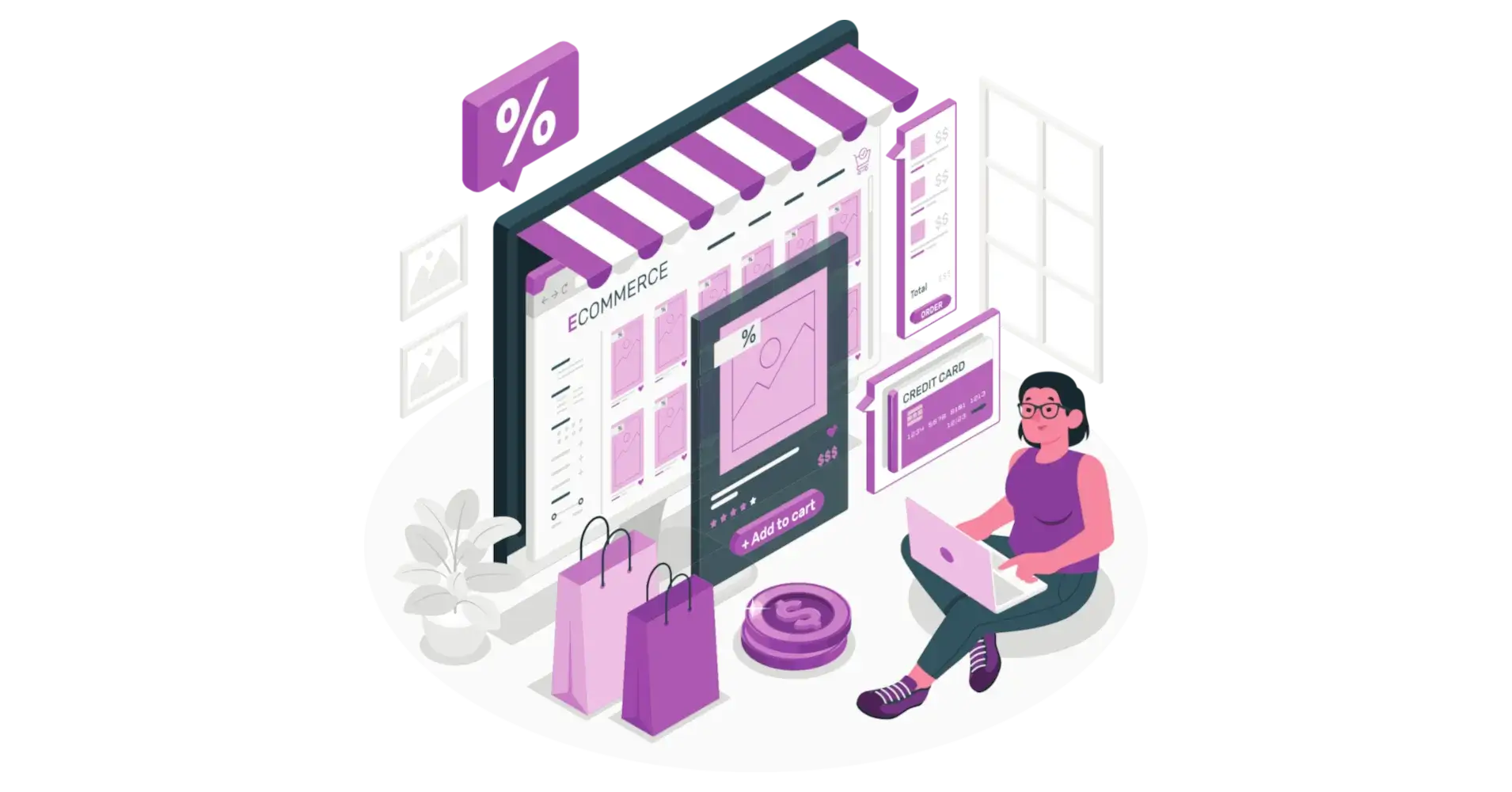
Choosing the perfect platform for your online store can feel like a high-stakes decision - it’s the foundation of your business, after all. Shopify and WordPress are two heavyweights in the e-commerce world, but they cater to different needs. Shopify is a ready-to-go e-commerce solution, while WordPress, paired with WooCommerce, offers flexibility for those willing to roll up their sleeves. So, which one’s right for you?
In this article, we’ll compare Shopify and WordPress across ease of use, customisation, cost, scalability, and support. Whether you’re a beginner or a growing entrepreneur, you’ll find the insights you need to decide. Let’s get started!
What is Shopify, and How Does It Work?
Shopify is a dedicated e-commerce platform built from the ground up to help you sell online. It’s a hosted solution, meaning Shopify handles the technical stuff - hosting, security, and updates—so you can focus on your store. You sign up, pick a plan, and use its user-friendly tools to set up shop.
Here’s what you get with Shopify:
- Built-in features like product management, payment processing, and shipping tools
- A selection of sleek, customizable templates
- Automatic updates and top-notch security
- Round-the-clock support
It’s perfect if you want a hassle-free way to launch your store fast.
What is WordPress, and How Can It Be Used for E-commerce?
WordPress is a content management system (CMS) that powers everything from blogs to full-blown websites. While it’s not inherently an e-commerce platform, adding the WooCommerce plugin transforms it into a powerful online store builder. You’ll need to set it up yourself, though, which includes arranging hosting and installing the software.
With WordPress and WooCommerce, you get:
- Total control over your site’s look and features
- Thousands of themes and plugins to play with
- The ability to mix content (like blogs) with your store
- Endless potential for customization
It’s a great fit if you’re comfortable with a bit of tech or want a highly tailored store.
Which Platform is Easier to Use for Beginners?
For beginners, Shopify takes the crown. Its drag-and-drop builder and all-in-one setup mean you don’t need to know code or tech jargon. You can go from zero to selling in a day. Everything—products, payments, shipping—is baked in and easy to manage.
WordPress, on the other hand, asks for more effort. You’ll need to:
- Pick and configure a hosting provider
- Install WordPress and WooCommerce
- Set up payments and shipping manually
- Keep everything updated
If you’re not tech-savvy, Shopify’s simplicity wins. But if you’re up for a learning curve, WordPress offers more rewards down the line.
How Do Shopify and WordPress Compare in Terms of Customisation?
When it comes to customisation, WordPress shines. With thousands of themes and plugins, you can tweak every detail of your store—design, features, you name it. Want a unique checkout process or a niche integration? WordPress can handle it, though you might need some coding know-how.
Shopify offers customisation too, but it’s more limited. You’re working within its ecosystem of templates and apps. While these are polished and easy to use, you can’t stray too far from what Shopify provides unless you dive into its Liquid coding language.
Pick WordPress for boundless creativity; choose Shopify for a simpler, guided experience.
What Are the Costs Associated with Each Platform?
Let’s talk money—here’s how the costs stack up.
Shopify Costs:
- Subscription fees: Plans start at $39/month (Basic) and go up to $399/month (Advanced).
- Transaction fees: Extra charges apply if you skip Shopify Payments (0.5%–2% per sale).
- Add-ons: Premium apps and themes can add $10–$100+ monthly.
WordPress Costs:
- Software: WordPress and WooCommerce are free.
- Hosting: Ranges from $5/month (shared) to $100+/month (high-performance).
- Domain: About $10–$15/year.
- Themes/Plugins: Free options exist, but premium ones cost $50–$200+ upfront.
- Upkeep: You might pay for developer help with updates or fixes.
Shopify’s pricing is predictable but higher upfront. WordPress can be cheaper to start, though costs can creep up with hosting and maintenance.
Which Platform is More Scalable for Growing Businesses?
Both platforms can grow with you, but they approach scalability differently.
Shopify is built for it. As your traffic and sales climb, you can upgrade your plan for more bandwidth and features. Shopify’s servers keep your store speedy and secure, no tinkering required.
WordPress scales too, but it’s on you to make it happen. You’ll need to:
- Upgrade hosting as traffic spikes
- Optimize performance (think caching or CDNs)
- Ensure plugins don’t slow you down
Shopify’s hands-off scaling suits busy owners. WordPress gives control freaks the reins—if you’ve got the skills.
What Kind of Support Can You Expect from Shopify and WordPress?
Support can be a lifesaver when things go wrong.
Shopify delivers 24/7 support through phone, email, and live chat, plus a robust help center. Whether it’s a payment glitch or a design question, help’s a click away.
WordPress leans on community support. There’s no official hotline—help comes from WooCommerce docs, forums, or paid developers. It’s DIY troubleshooting unless you hire someone.
If you want dependable, instant support, Shopify’s your pick. If you’re okay figuring things out, WordPress works fine.
When Should You Choose Shopify?
Go with Shopify if
- You’re new to this and want an easy start
- You need a store up and running ASAP
- You like an all-in-one package (hosting, security, support)
- You’re okay with monthly fees for peace of mind
When Should You Choose WordPress?
Opt for WordPress if
- You crave full control over your store
- You’re tech-savvy or eager to learn
- You want to keep upfront costs low
- You need a unique, custom-built site
Visual Comparison: Shopify vs. WordPress
Here’s a snapshot to see the differences at a glance:
| Feature | Shopify | WordPress (with WooCommerce) |
|---|---|---|
| Ease of Use | Super beginner-friendly | Takes some tech know-how |
| Customization | Limited but polished | Near-infinite possibilities |
| Cost | $39–$399/month + extras | Free + hosting/add-ons |
| Scalability | Automatic with plan upgrades | Manual but flexible |
| Support | 24/7 direct help | Community and paid options |
Conclusion: Which Platform Wins for Your Store?
There’s no one-size-fits-all answer here—it’s about what you need. Shopify is your go-to for a fast, stress-free setup with solid support, perfect if you just want to sell. WordPress is the choice for customization and control, ideal if you’re ready to invest time and effort.
Think about your skills, budget, and goals. Either way, you’ve got a powerful tool to build your online empire. Which one’s calling your name?


